Duct Tape and Barbed Wire: The Story of Dave Brown
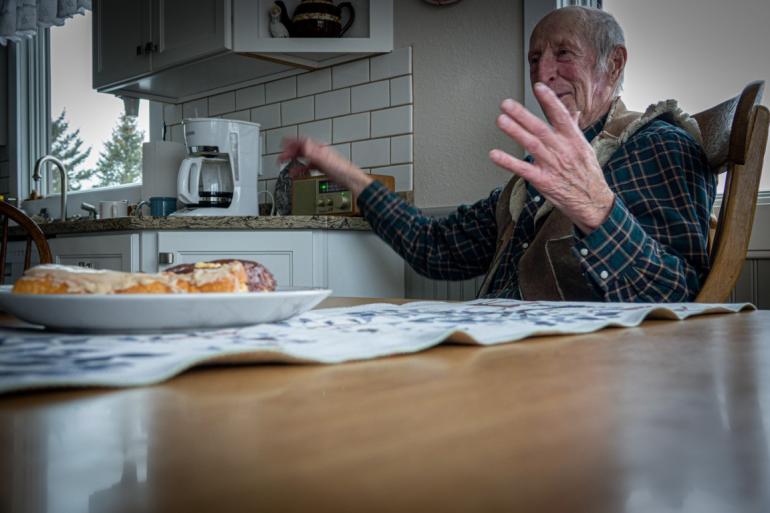
There are certain people that shape your life. Dave is one of them.
I grew up with him providing our family with milk, asparagus, and honey throughout the years. My mother would often describe Dave as a character.
You needed to be tough to live on his farm. My dad would be called almost on a weekly basis to help him fix one of his aging pieces of farm equipment that he had previously repaired with random wire and tape. The colorful descriptions of Dave's childhood full of mystery, not to mention his near misses with machinery, garage doors, and fires were just begging to be written about. His life is Montana to the core and needs to be written about before it, and the last of the old-timers like him, are lost.
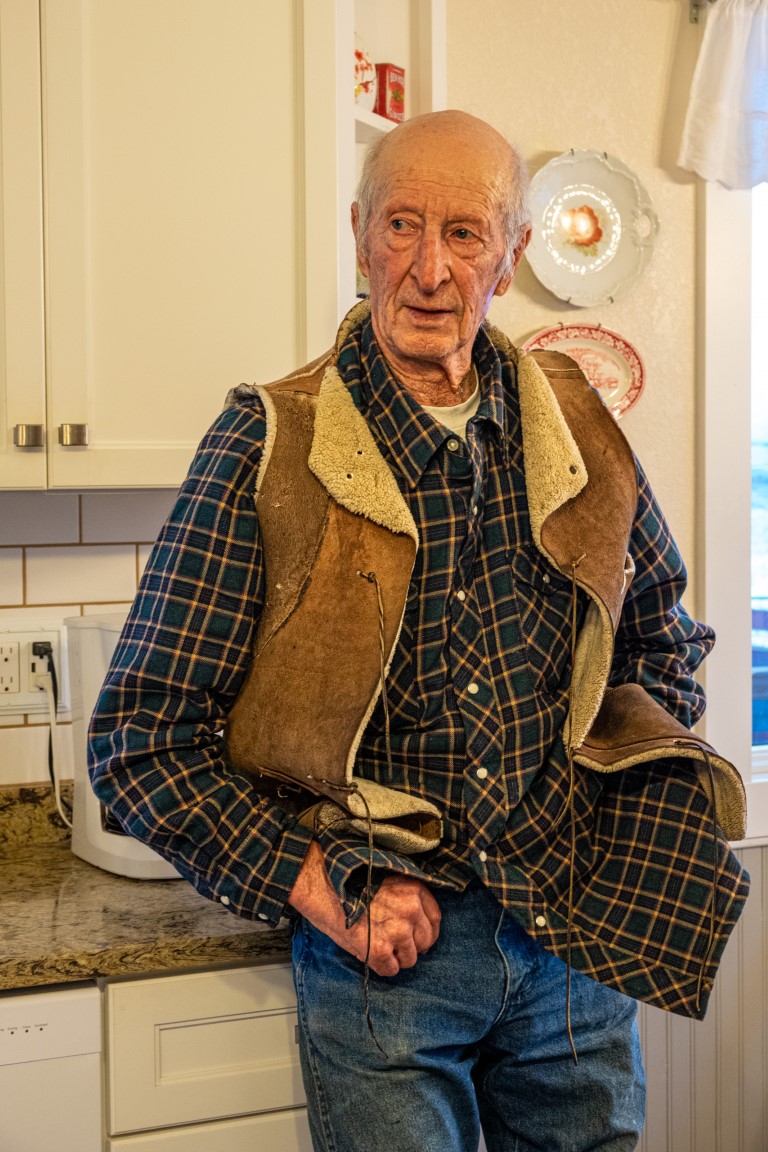 I wasn't sure Dave would even agree to a sit-down interview, so I asked my mother to ask him. I thought he would say no, but he said yes, and we came up with a time to meet over at my parents' house outside Whitehall.
I wasn't sure Dave would even agree to a sit-down interview, so I asked my mother to ask him. I thought he would say no, but he said yes, and we came up with a time to meet over at my parents' house outside Whitehall.
Dave pulled up in an old car with his two dogs that go everywhere with him, Amigo and Freckles, in the back seat. They know my parents' place well and are used to my mom doling out treats, for which they wait patiently at the door. Dave enters the house wearing an old leather vest, and within minutes of walking into the kitchen starts talking about his weekend spent in Billings, dancing.
At first glance he wouldn't make for a Fred Astaire, but he's better than a lot of men half his age, and he likes to show it. He says the old ladies he dances with have knee issues, and can't twirl because if you spin them around they get dizzy. Luckily for them both, he found a spry 70-year-old who came from North Dakota just to dance at the polka festival. Dave says he is more active than most of the guys at the dance and can still pretzel.
I must ask what a pretzel is because he sounds quite proud of that.
In his words, it is where the guy stands in place and "throws the gal around. You look like you're doing a lot but you're not really doing anything," he explains with a laugh.
I ask him about the underground dance hall that was run like a speakeasy a few years back out in the middle of nowhere.
He is vague with the description of where it is and will only say, "You go parallel the railroad track, turn up a hill, go past the railroad tracks again and park in a field by a barn," so I leave the enigma hanging with an air of mystery.
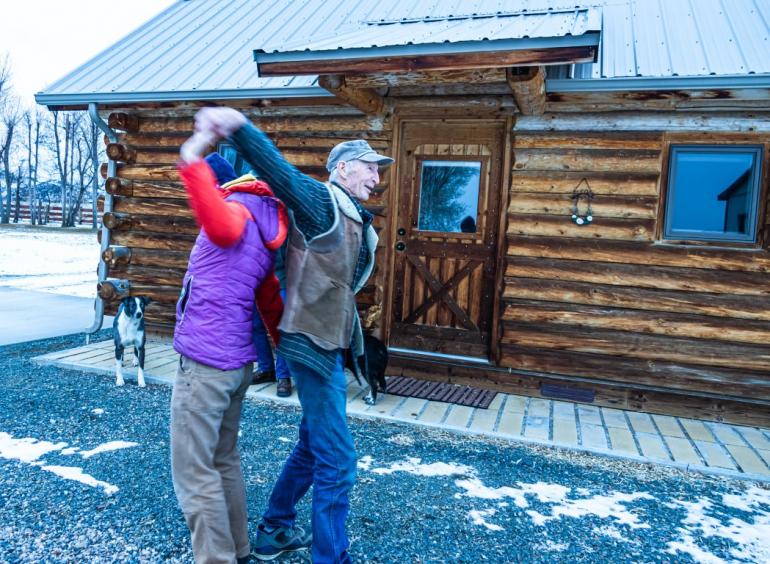
Dave has been dancing for 23 years, but he never danced in high school or even had a girlfriend, he says, because he was too busy cowboying and hunting. Dave grew up in Butte just behind the Mint Bar. I ask what he means by too busy cowboying, and his answer is, "That's my life story right there."
He begins by telling how his grandmother had a homestead up in the highlands just outside Butte, property that his great-grandfather bought from a Native American who homesteaded it with one cabin. Dave remembers a range rider who worked for the stock association he rode with every summer. They would take care of around 3,000 head of cattle at the cow camp up in the highlands for the association from Melrose and Twin Bridges. Dave tells me LaMarche Creek in Big Hole was named after the range rider's father. Every Sunday, they would all ride to his grandmother's cabin for a big dinner she would cook over the wood stove. He said it was a highlight of the week for them all.
As we are talking, I tell him that Butte isn't well known for running cattle, and he says you wouldn't really know that folks had done it unless you talk to someone who grew up with it. His grandmother's father walked up from California and worked in the mines to save up enough money to buy the homestead. He can remember his grandmother telling him that her dad herded four two-year-old steers into Butte from the Highlands through the Basin Creek Reservoir and sold them for $50.00 apiece, the going price back then.
Dave says his grandmother remembered when Lincoln was assassinated; all the mine whistles in Butte as well as the church bells went off.
His great-grandfather and great-grandmother bought 160 acres, and then William A. Clark acquired it from his great-grandmother illegally. She was so mad that she went over to the grandstand at Clark Park with an axe and started chopping away at it until the cops had to be called. The Butte Civic Center now stands on that same land. He tells me that she still, wherever she is, believes that land is theirs.
I tell Dave she sounds like a feisty woman, and he says she was a little ball of fire like his great uncle Tal Johns, who was the flyweight champion of the Northwest in boxing. Dave says he recalls there was a saying in Butte: "They could throw Tal out of the bar by the seat of his pants, but if they wanted to fight him they couldn't lick him."
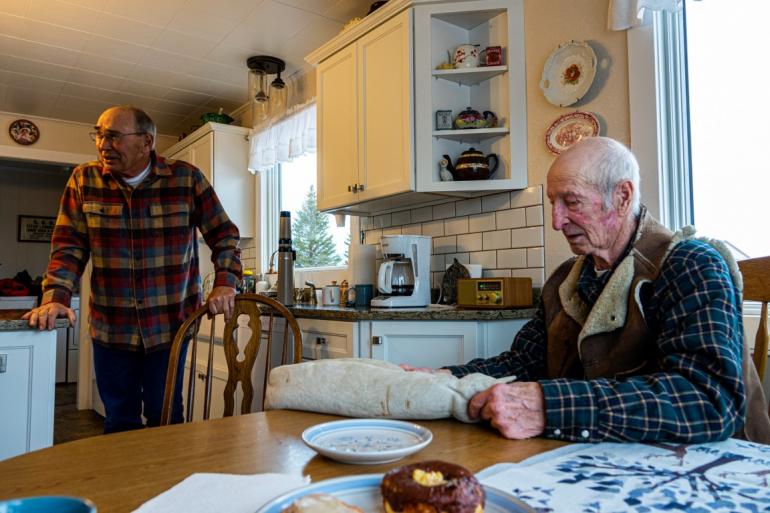
I ask how he came about owning a dairy farm outside Whitehall, and he tells me how he wanted to be around horses and cows, and his dad would always drive over that way every weekend and wanted to move due to less snow in winter. After looking at farms in the area, they settled on where he is still living, 64 years later. The only way you could be a full-time farmer back then was to dairy, and in 1959 there were over ten dairies from Waterloo to Whitehall. My parents became close friends with Dave over the years buying milk from him, and said that before the state regulations there would be a line out of the barn to buy the milk for a dollar a gallon.
Dave has certainly had some near misses, as does anyone living on a farm or ranch. I ask him about the time he bought a motorcycle too big for him and what happened in his field. His brow furls as he thinks about this for a minute and says, "Oh…that." He laughs and says that he was in one of his fields irrigating with the bike and it tipped over on him, pinning his leg. He started waving for help and the meat inspector heading down the road slowed down, looked at him waving like mad, waved back, and kept on driving. He eventually had to call his brother and ask him to come out and get the bike off him. There are many mishaps like this that Dave recounts and we are all amazed how he came out unscathed.
He not only ran a dairy farm but had a shoe repair business in Butte. He would run the dairy during the day before driving into Butte to work on shoes until around 10 o'clock at night. He was also a leather maker, and my dad brings out a beautiful sheepskin scope cover Dave made for him. I ask if he made the vest he is wearing and he says he made it over 15 years ago, and it still has hardly any wear on it. "I guess once I think about it, I have had a pretty good life. Just sailing through it with good health, and it was exciting."
As I listen to our recorded conversation for the article, I have to smile at the stories that span decades but feel like they happened yesterday. Stories of hunting the Tobacco Roots outside Whitehall, being pinned by his own garage door, to how he accomplished so much with only one eye, the other having been lost when while falling down the stairs playing with his brother at the tender age of three years old. One of the last things he said, while walking back to his car, was a question: he asked me with a smile if I danced. I told him that, sadly, I don't, but that I might be willing to try, if only for a moment here in the driveway. As he took my hand and tried his best to show me how to dance, I could tell that none of the other men at the dance hall can hold a candle to Dave.
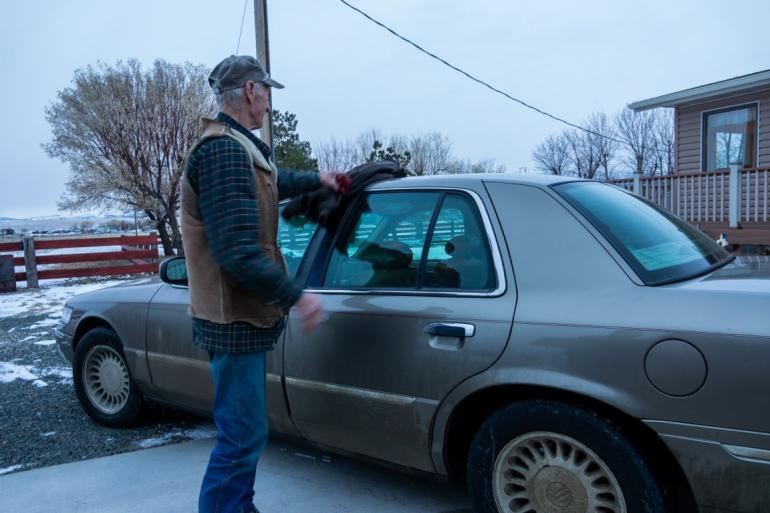
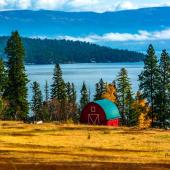
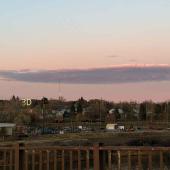
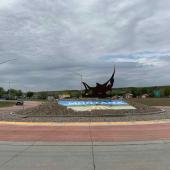
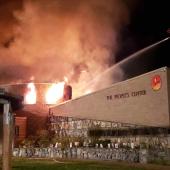
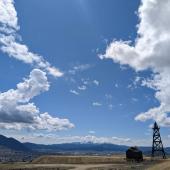
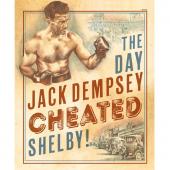
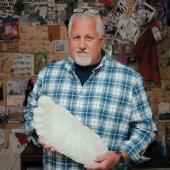
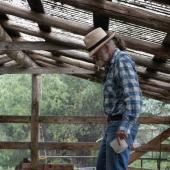
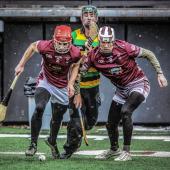
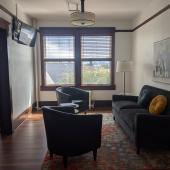
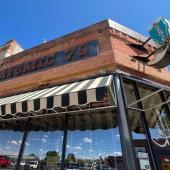
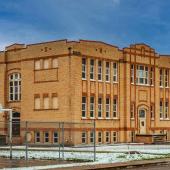
- Reply
Permalink